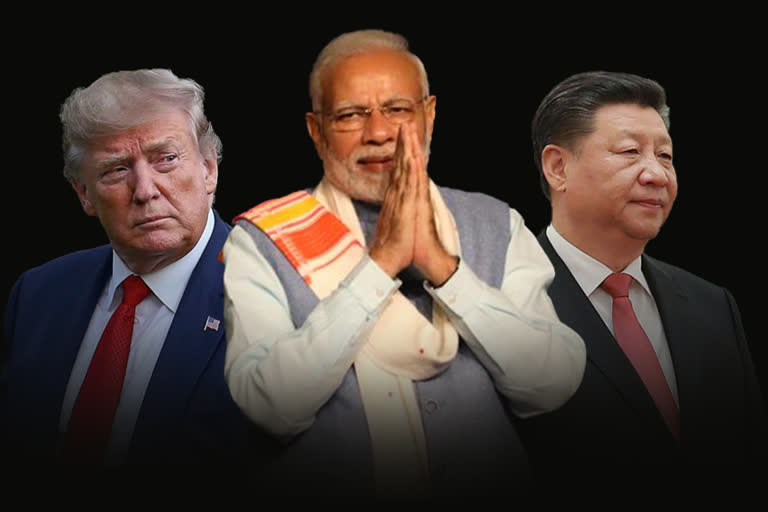Geneva: India gained about USD 755 million in additional exports, mainly of chemicals, metals and ore, to the US in the first half of 2019 due to the trade diversion effects of Washington's tariff war with China, a study by the UN trade and investment body has said.
The study, Trade and trade diversion effects of United States tariffs on China, shows that the ongoing US-China trade war has resulted in a sharp decline in bilateral trade, higher prices for consumers and trade diversion effects - increased imports from countries not directly involved in the trade war.
The study puts the trade diversion effects of the US-China tariff war for the first half of 2019 at about USD 21 billion, implying that the amount of net trade losses corresponds to about USD 14 billion.
The US tariffs on China have made other players more competitive in the US market and led to a trade diversion effect. These trade diversion effects have brought substantial benefits for Taiwan (province of China), Mexico, and the European Union.
"Trade diversion benefits to Korea, Canada and India were smaller but still substantial, ranging from USD 0.9 billion to USD 1.5 billion," it said. The remainder of the benefits were largly to the advantage of other South-East Asian countries.
The US tariffs on China resulted in India gaining USD 755 million in additional exports to the US in the first half of 2019 by selling more chemicals (USD 243 million), metals and ore (USD181 million), electrical machinery (USD 83 million) and various machinery (USD 68 million) as well as increased exports in areas such as agri-food, furniture, office machinery, precision instruments, textiles and apparel and transport equipment, UNCTAD said.
While it does not consider the impact of Chinese tariffs on US imports, the study indicates that qualitative results are most likely to be analogous: higher prices for Chinese consumers, losses for US exporters and trade gains for other countries.
Of the USD 35 billion Chinese export losses in the US market, about USD 21 billion (or 62 per cent) was diverted to other countries, while the remainder of USD14 billion was either lost or captured by the US producers.
The study found that tariffs imposed by the United States on China are economically hurting both countries and that consumers in the US are bearing the heaviest brunt of Washington's tariffs on Beijing, as their associated costs have largely been passed down to them and importing firms in the form of higher prices.
"The results of the study serve as a global warning. A lose-lose trade war is not only harming the main contenders, but it also compromises the stability of the global economy and future growth," UNCTAD's director of international trade and commodities Pamela Coke Hamilton said.
"We hope a potential trade agreement between the US and China can de-escalate trade tensions."
